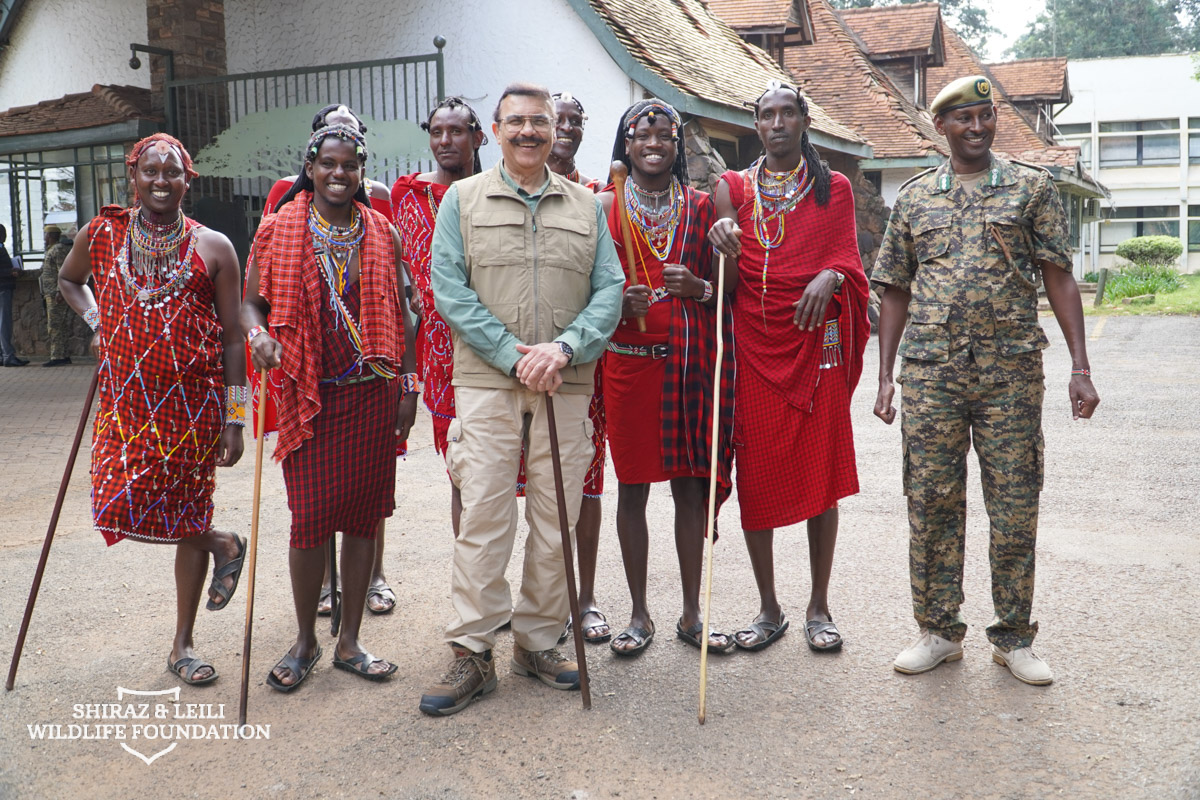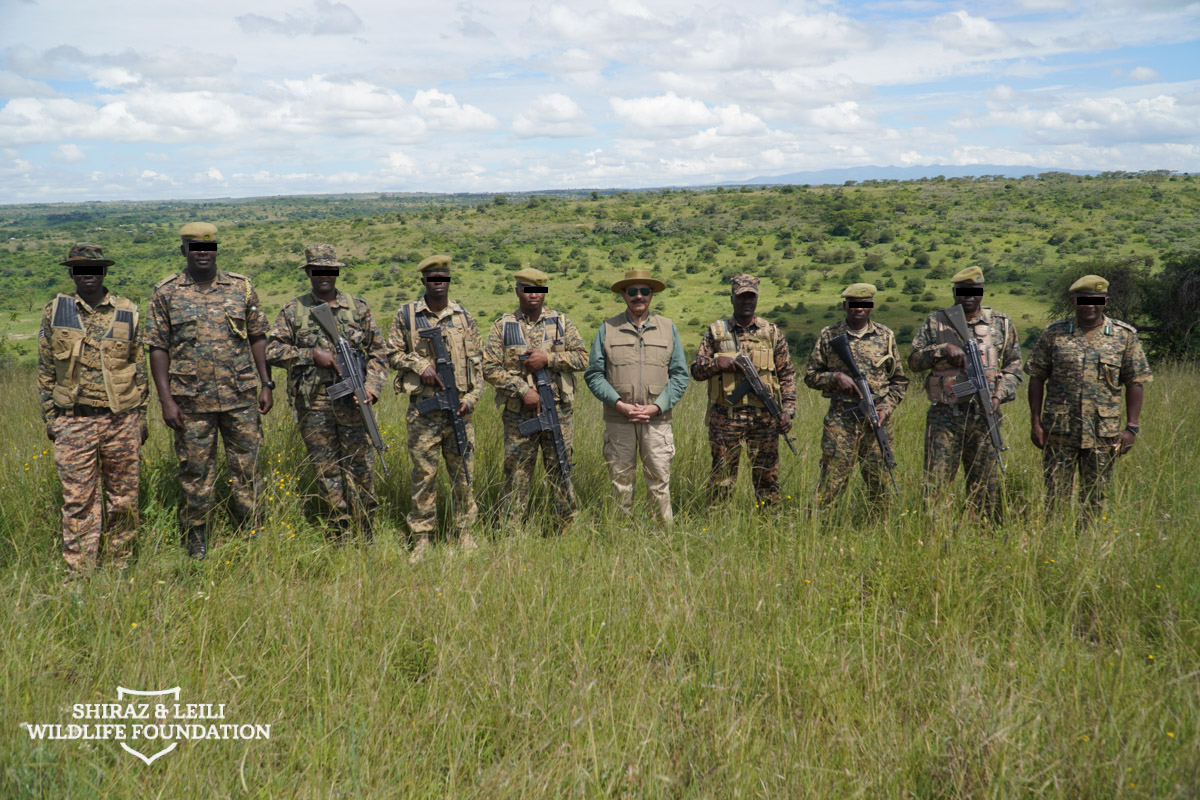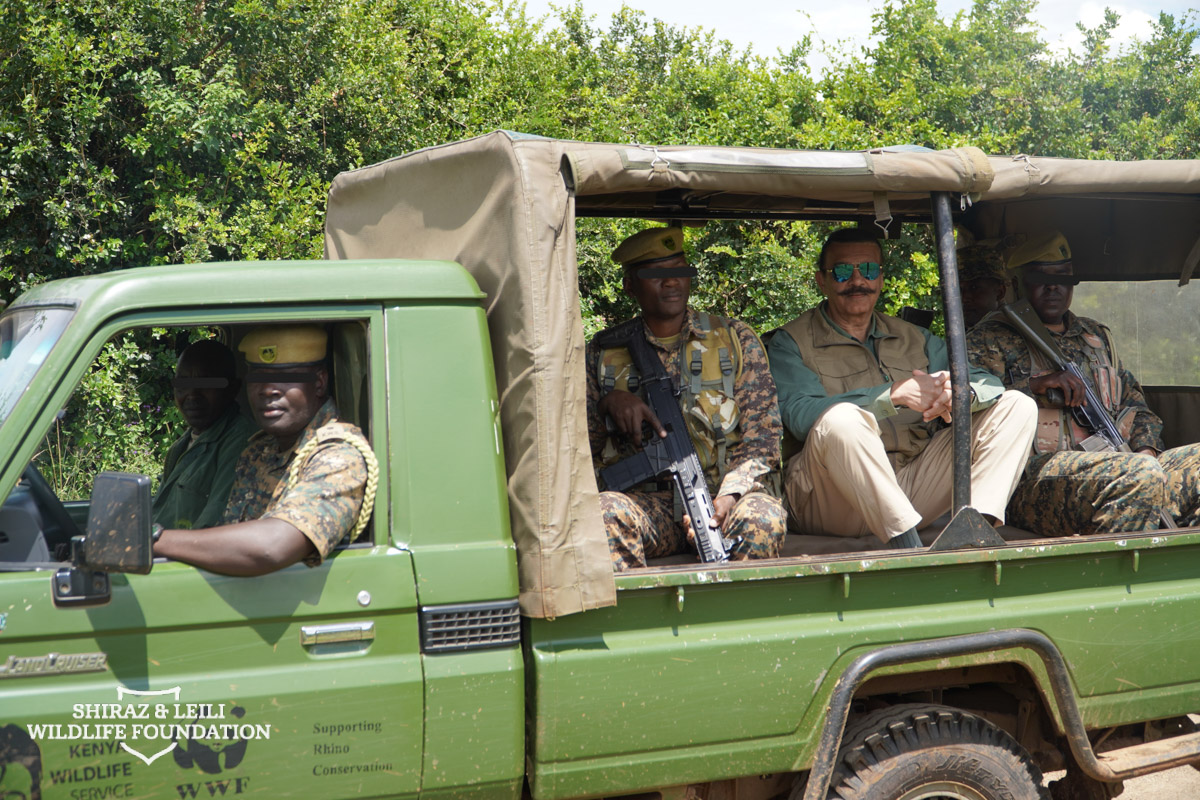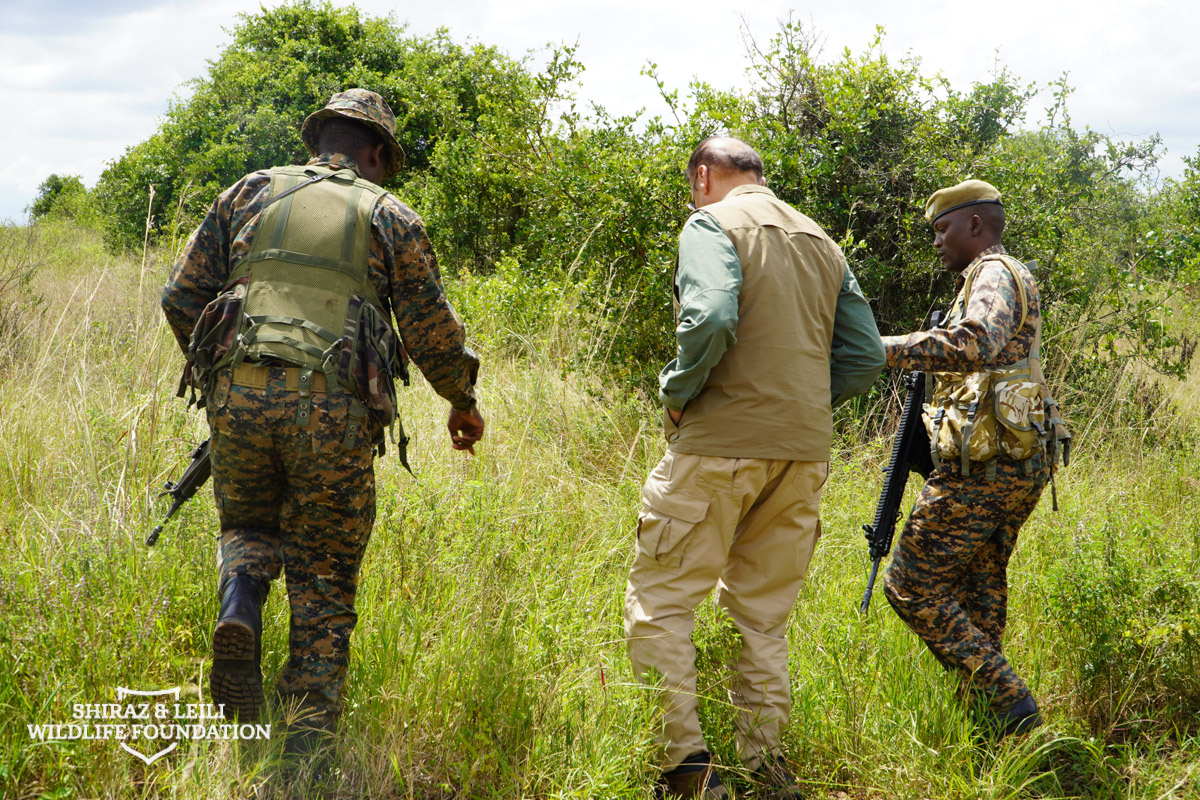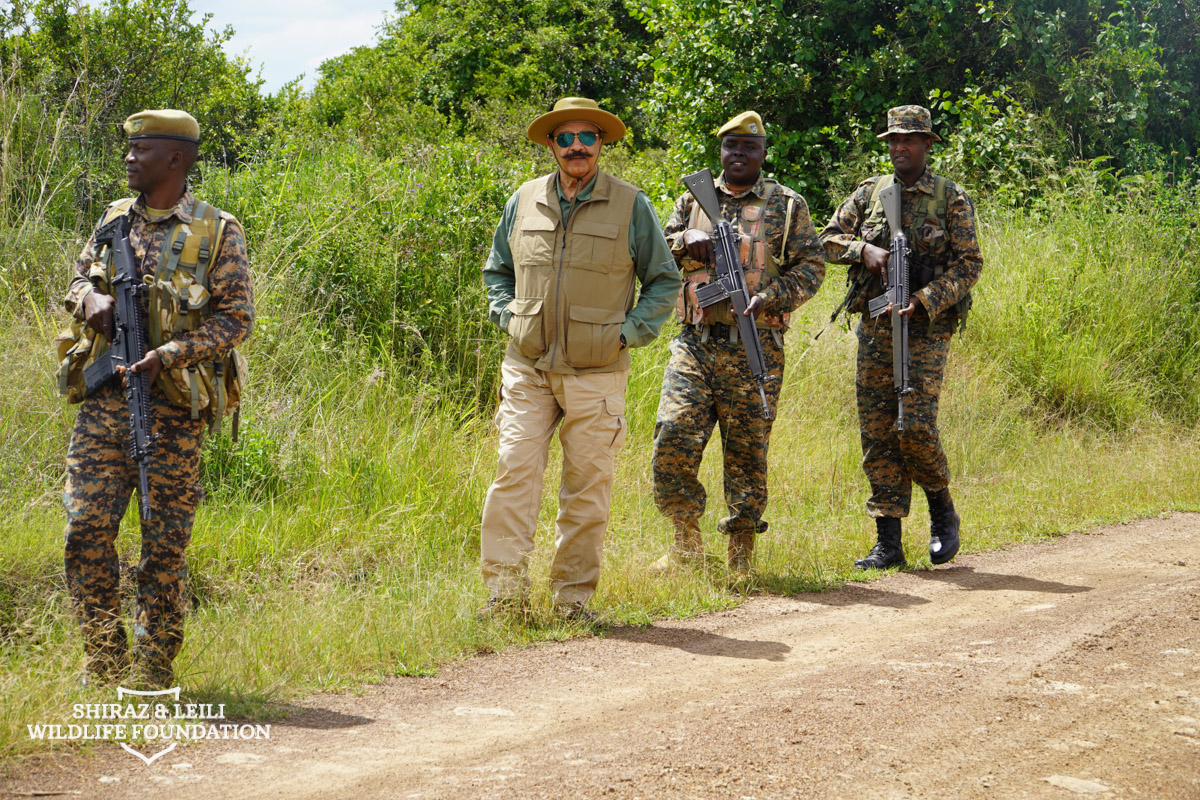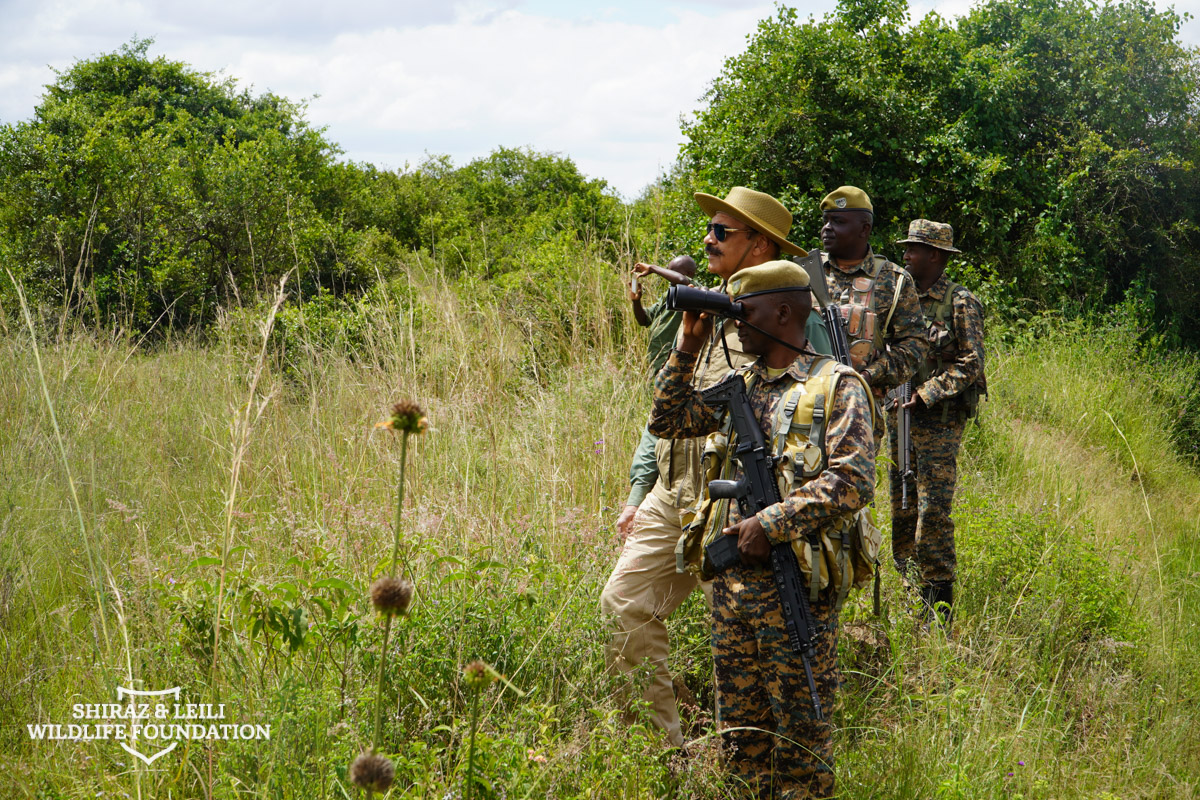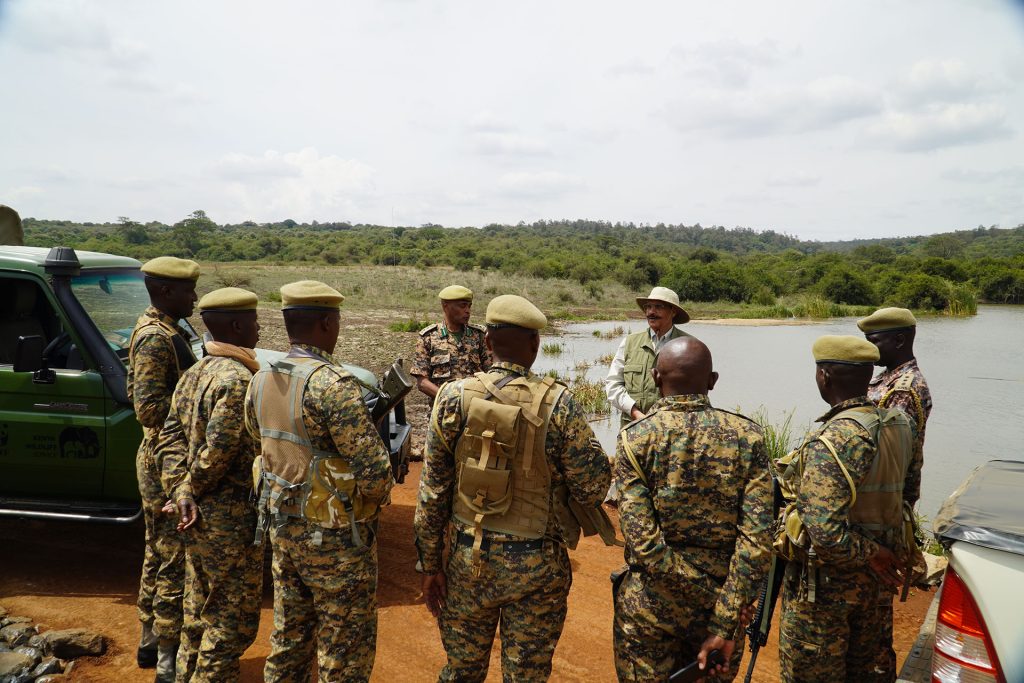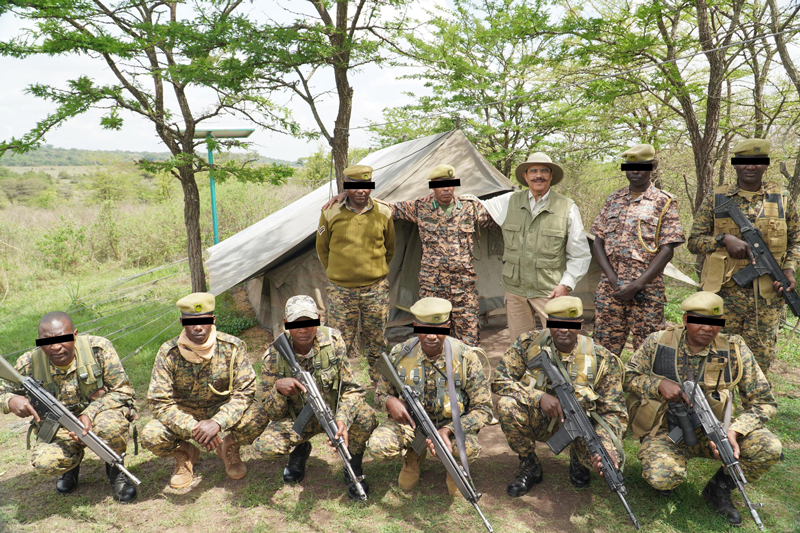“There he is” said the Ranger who was sitting on one of the back bench seats facing the bush.
The custom equipped Landcruiser Ranger vehicle stopped and several Rangers jumped out surrounding the poacher who was holding a spear.
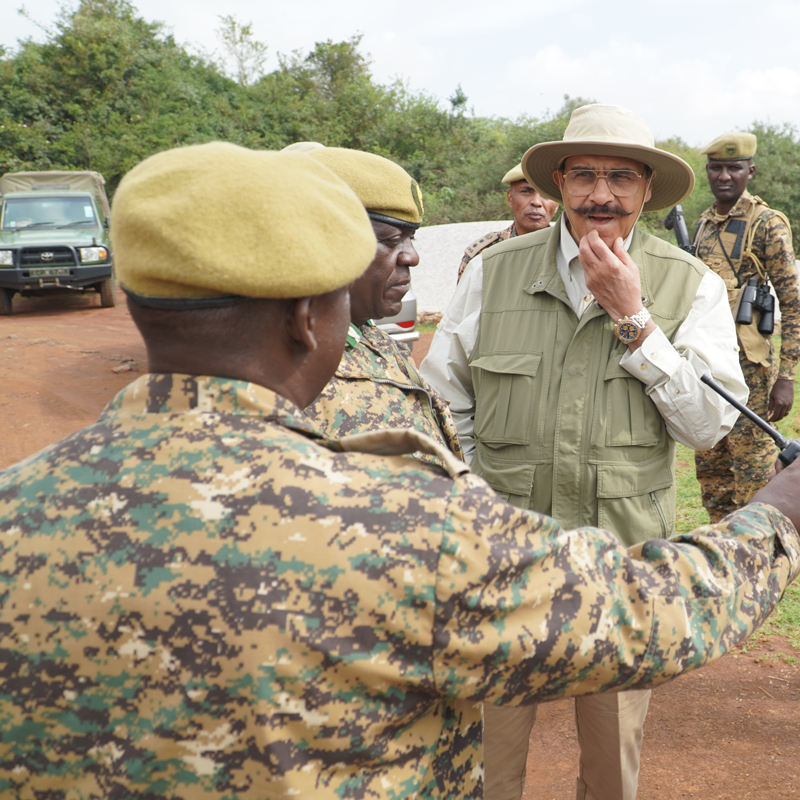
Wish it was that simple. It is not! We are not dealing with the low-level inexperienced African villager who is trying to kill a small Impala to feed his family. The poachers that we have to deal with are extremely dangerous, sophisticated and part of a well-organized wildlife poaching cartel that is well-funded (primarily by Asian buyers) with layers of well-trained middlemen who are after the big-ticket items like ivory tusks, rhino horns, leopard and other exotic skins, lion’s teeth etc. The list is endless.
These syndicates of poachers have better equipment than the Rangers. From communication gear, GPS units, ultramodern semi-automatic weapons, tracking devices, night vision equipment and much more – they have it all! On the other hand, Rangers are limited to equipment that has been issued to them. Most of this equipment is older and outmatched by what the poachers use. That is one of the main reasons why numerous Rangers are killed by poachers every year.
“We wanted to change the odds and decided it was time to do something meaningful instead of just sending money to various charities that purport to be helping wildlife conservation.”
Since I was born in Kenya and knew that country and its challenges well, I thought it would be a good place to start. Once a good template was established, we could repeat that in other countries that have similar challenges. Poaching is not just limited to Kenya. Animals do not have borders and often cross into other neighboring countries.
KWS (Kenya Wildlife Services) is the official branch of the Kenyan Government that deals in all issues related to Wildlife Conservation. We were able to break through to the right department and had several very productive meetings with all the top officials at KWS headquarters in Nairobi, Kenya. The meetings were very informative and gave us insight not only about the needs of the Rangers but also the breadth of work that they have to carry out in so many different areas covering huge swaths of land and water across the whole country. Leili and I spent two days with KWS and I personally went out on a Rhino anti-poaching detail with the Rangers for several hours. This was very eye opening and gave me a chance to talk to the “boots on the ground” and what their challenges are. Rangers put their lives on the line every single day and we will do everything possible to help them!

